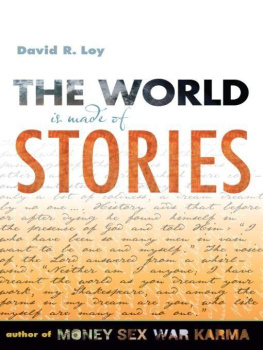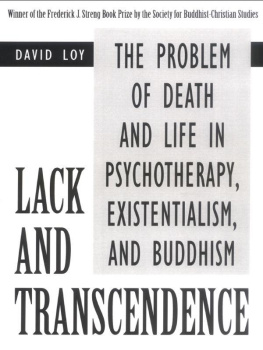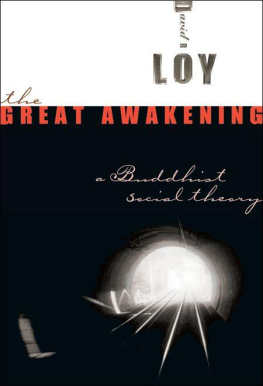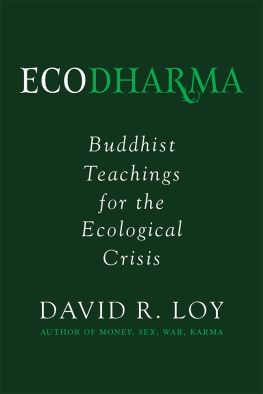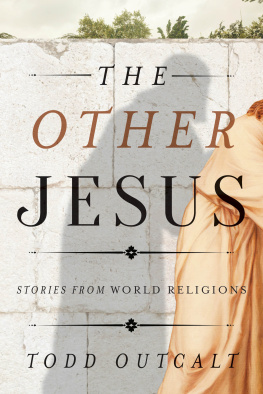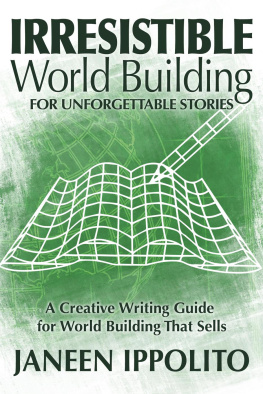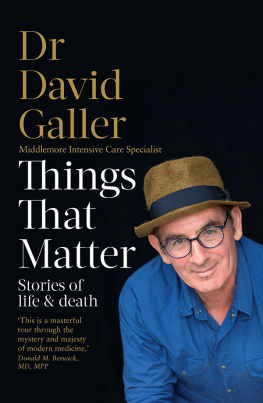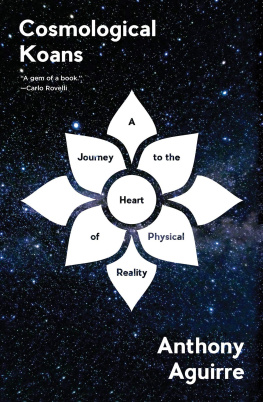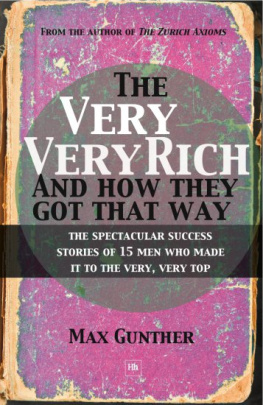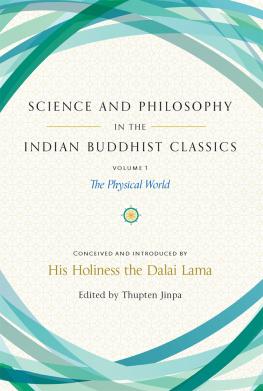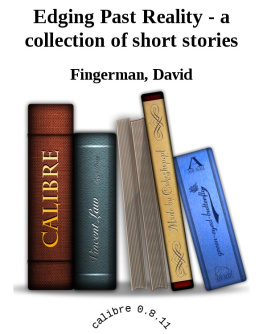Table of Contents
Preface
Those who meditate are familiar with the warnings: Dont cling to concepts! We should let them go because they distort our perceptions. Yet concepts in themselves are fragments, meaningful as parts of stories. The problem is not stories themselves but how we relate to them. We do not see our stories as stories because we see through them: the world we experience as reality is constructed with them.
That the world is made of stories is consistent with what Buddhism says about the human predicament and how it can be resolved. The foundational story we tell and retell is the self , supposedly separate and substantial yet composed of the stories I identify with and attempt to live. Different stories have different consequences. Karma is not something the self has but what the sense of self becomes, when we play our roles within stories perceived as real. As those roles become habitual, mental tendencies congeal and we bind ourselves without a rope.
If the self is made of stories, what does that imply about its death? If the world is made of stories, what does that imply about its emptiness, what Buddhism calls shunyata ? Do our stories obscure a craving for power that underlies and motivates what we do, or is power itself a screen-story for something else? If delusion is awareness stuck in attention-traps, and enlightenment liberates awareness, does the spiritual path involve finding the correct story, or getting rid of stories, or learning to story in a new way?
In addressing these and other issues, the story that follows offersamong other thingsa new way of understanding Buddhism and a new Buddhist understanding of the Way.
In the Beginning Was the Story
You get older, and you realize there are no answers, just stories. And how we love them.
Garrison Keillor
The universe is made of stories, not atoms.
Muriel Rukeyser
Not atoms? Of course it is made of atoms. Thats one of our important stories.
What other stories make our world? Creation myths; folk and fairy tales; seventeen-syllable Japanese haiku and three-day Indonesian shadow-puppet dramas; novels romantic, fantastic, and graphic; television soap operas... newspaper features; oped articles; internet blogs; talk show chatter; office memos; obituaries and birth announcements; how-to-use manuals... and how youre feeling this morning; what happened during our vacation; what to plan for the weekend.
A story is an account of something . Whats the story on these unpaid bills?
If the world is made of stories, stories are not just stories. They teach us what is real, what is valuable, and what is possible. Without stories there is no way to engage with the world because there is no world, and no one to engage with it because there is no self.
The world is made of our accounts of it because we never grasp the world as it is in itself, apart from stories about it. We do not experience a world and then make up stories to understand it. Whenever we try to peel them all away, to discover the reality behind, whatever becomes exposed immediately transforms into story, like excavated artifacts that disintegrate as soon as uncovered.
The same is true of ourselves, but that is getting ahead of the story.
This is not to deny (or assert) that there is a world apart from our stories, only that we cannot understand anything without storying it. To understand is to story.
According to a Hindu myth, the world is upheld by the great elephant Maha Pudma, who is in turn supported by the great tortoise Chukwa.
An Englishman asked a Hindu sage what the great tortoise rests upon.
Another turtle, was the reply.
And what supports that turtle?
Ah, Sahib, after that its turtles all the way down.
Stories all the way down.
Language is basically for telling stories.... A gathering of modern postindustrial Westerners around the family table, exchanging anecdotes and accounts of recent events, does not look much different from a similar gathering in a Stone Age setting. Talk flows freely, almost entirely in the narrative mode. Stories are told and disputed; and a collective version of recent events is gradually hammered out as the meal progresses. The narrative mode is basic, perhaps the basic product of language.
Merlin Donald
The limits of my language are the limits of my world.
Wittgenstein
The limits of my stories are the limits of my world.
Like the proverbial fish that cannot see the water they swim in, we do not notice the medium we dwell within. Unaware that our stories are stories, we experience them as the world.
But we can change the water. When our accounts of the world become different, the world becomes different.
The Greek polis was formed by warriors who came back from the Trojan Wars. They needed a place to tell their stories, because it was only in the stories that they achieved immortality. Democracy was created in order to make the world safe for stories.
Ernest Becker
Does this mean we create the world? Stories are constructs that can be reconstructed but they are not free-floating. We need stories that account for climate change and enable us to address it. We cannot simply un-story global warmingalthough some fossil fuel companies have tried.
Reality is what doesnt go away when you stop believing in it.
Philip K. Dick
We want to strip away our accounts of the world to get at the bare facts, yet the bare facts is an account. To try to see the-world-as-it-really-is is to enact a story.
The world is not composed of facts, because what counts as a fact is determined by the theorythe storyit is related to.
Science is not primarily about discovering facts. It is about accounting for the relationships that make them meaningful.
Some modern moral philosophers have sought to create an ethics based on reason alone. But when utilitarians say that ethics should be based on the consideration of the greatest good for the greatest number, they require a substantive account of the good to get started: they still need a story about the good.... Efforts to create a religion within the bounds of reason alone run up against the same problem: they end up replacing old stories with new ones. Narrative, in short, is more than literature; it is the way we understand our lives.
Robert Bellah
Narrative is sometimes distinguished from rationality, mythos from logos . Yet reason is a storytelling style , a second-order story that needs a story to evaluate.
That we cannot get behind our stories is not idealism, which is a philosophical claim that the world is really made of mind stuff rather than physical stuff. Idealism and materialism, like rationalism, are meta-stories: stories about stories.
We want to discover the master-story, the one true meta-story that includes and explains all other storiesbut its turtles all the way up too.
The biggest meta-stories are mostly religious: God, Brahman, the Tao. Such stories try to point at something that transcends stories. Yet a meta-story cannot get outside itself to explain the relationship between stories and that-which-is-outside-stories.
A Zen metaphor warns us not to take the finger pointing at the moon for the moon itself, but the moon itself is also not the moon.
No dharma has ever been taught by a buddha to anyone, anywhere.

